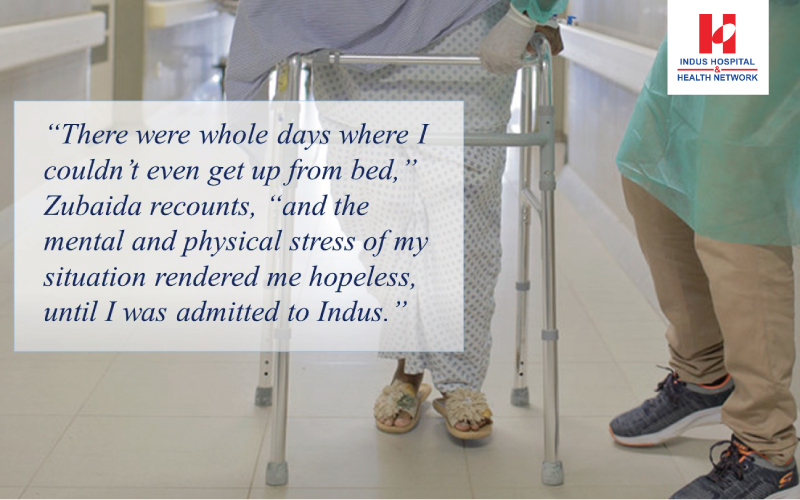
Zubaida Khatoon resides in Khanpur, a small village in the district of Shikarpur, Sindh. She lived with her husband and four children in a modest home, as the whole family worked to make ends meet. Her husband and family work as farmers on a small piece of land they own.
In 2018, during the harvesting period of wheat, tragedy struck. On the day of the incident, Zubaida followed her regular routine, where she woke up at the break of dawn and worked around the house till noon. After lunch, she joined her sons to work around the field to harvest the wheat. It was a grueling sunny day, and she gave herself a break and laid on a charpoy under the shade of a tree. She promptly fell asleep.
A snake had fallen from a nearby tree branch while she was dozing off. It landed on the charpoy and bit her on her leg.
The shock of the bite had her screaming in agony. Her son, who was busy in the field, rushed to her and called for help. Her husband and neighbors took her to the nearest primary health unit. The healthcare providers managed to save her life.
However, after a few days, she noticed that she had lost sensation in her legs. Her family took her to a taluka hospital which was 50 kilometers away. The doctors performed some tests and determined that her lower limbs had to be amputated below the knee.
Zubaida was traumatized and outright refused the procedure. However, her husband realized that it was the only way to save her life and, with a heavy heart, agreed to it.
The procedure left Zubaida wheelchair-bound and incapable of even caring for her basic needs. She was dependent on her family for everything. The indignation of her physical limitations traumatized her and severely affected her mental health.
Six months passed, but their situation didn’t change. Zubaida wanted desperately to work towards a way around her physical limitations, but she had no proper guidance or help. Around that time, a neighbor had come to her house to inform her and her family of the Indus Hospital, Korangi Campus in Karachi, which provided free prosthetic limbs to physically-challenged people.
It was a dream-come-true situation. The elated family headed to Karachi, where Zubaida received prosthetic limbs. The technicians took measurements of her knees and crafted the prosthetics. The professionals provided training and offered guidance and therapy to help her get back to her feet.
The prosthetics attached to Zubaida couldn’t replace the limbs she lost but help her regain her dignity and independence back. Contrary to what Zubaida thought at first, the limbs weren’t made to help her overcome her physical limitations. They were there to heal her mental scars.





